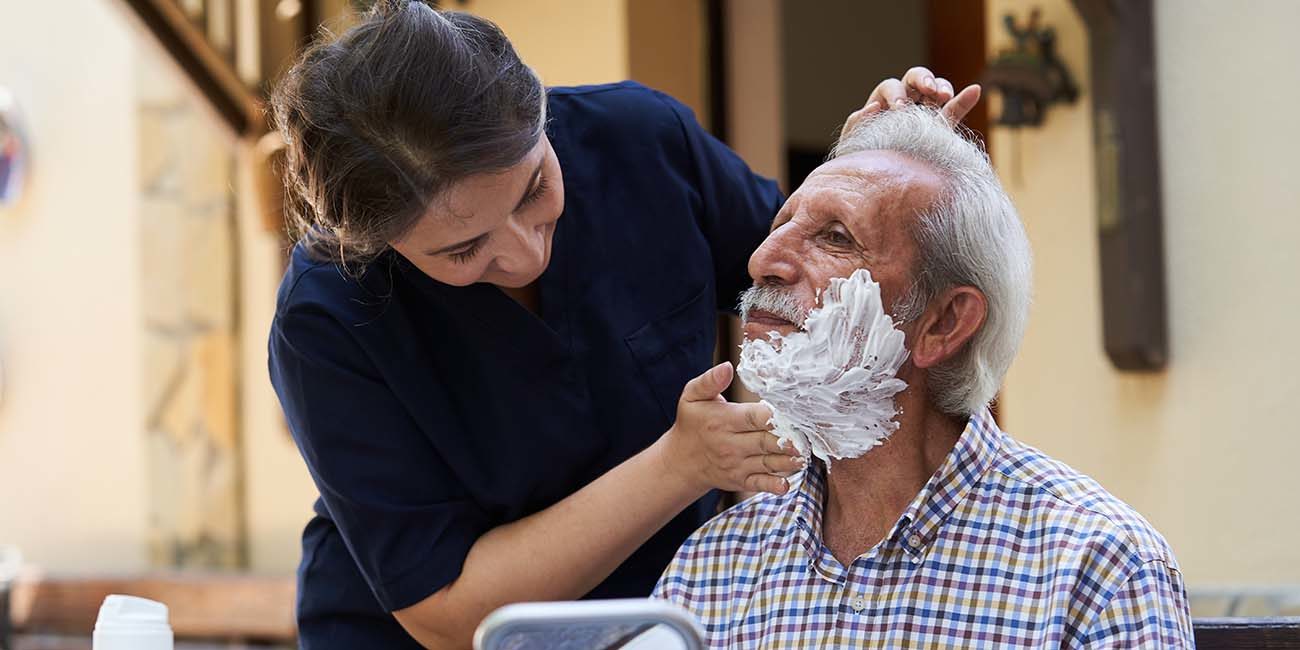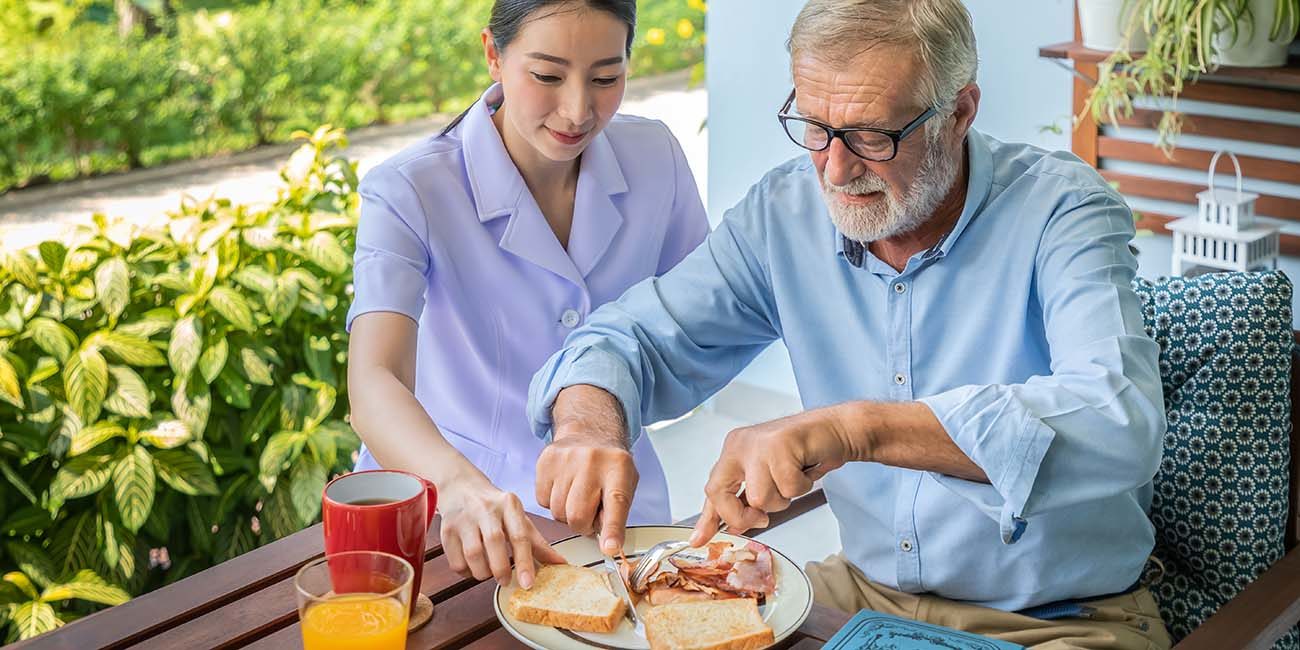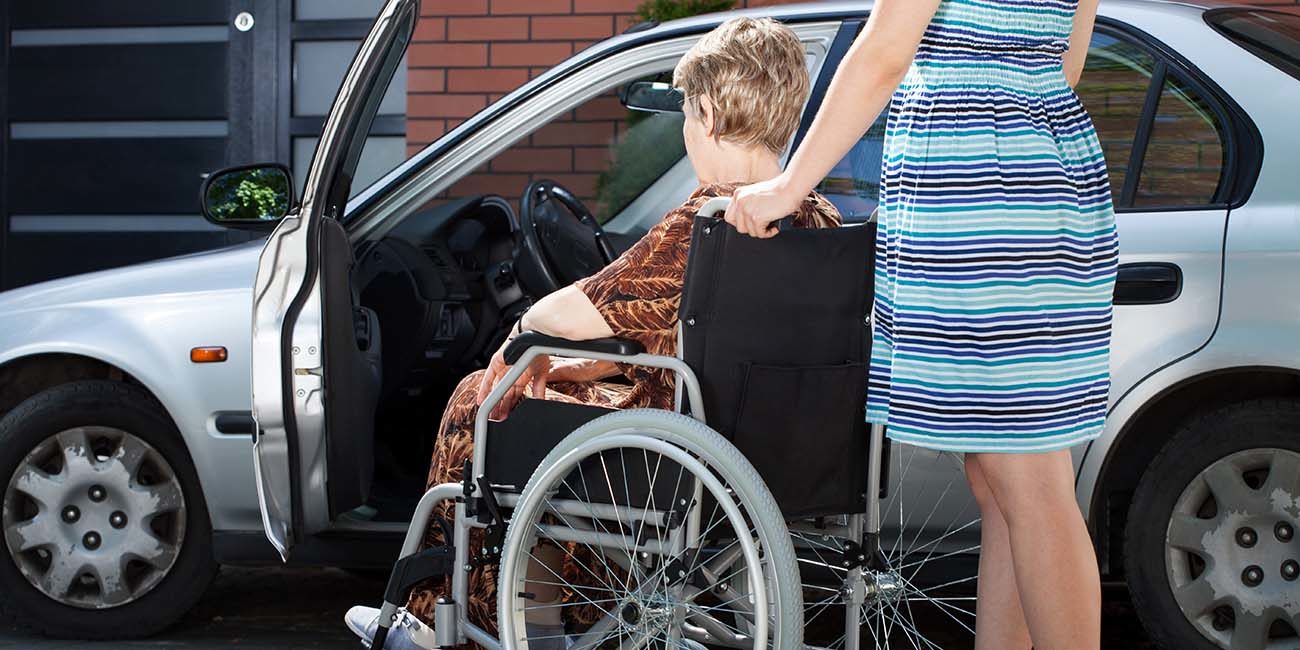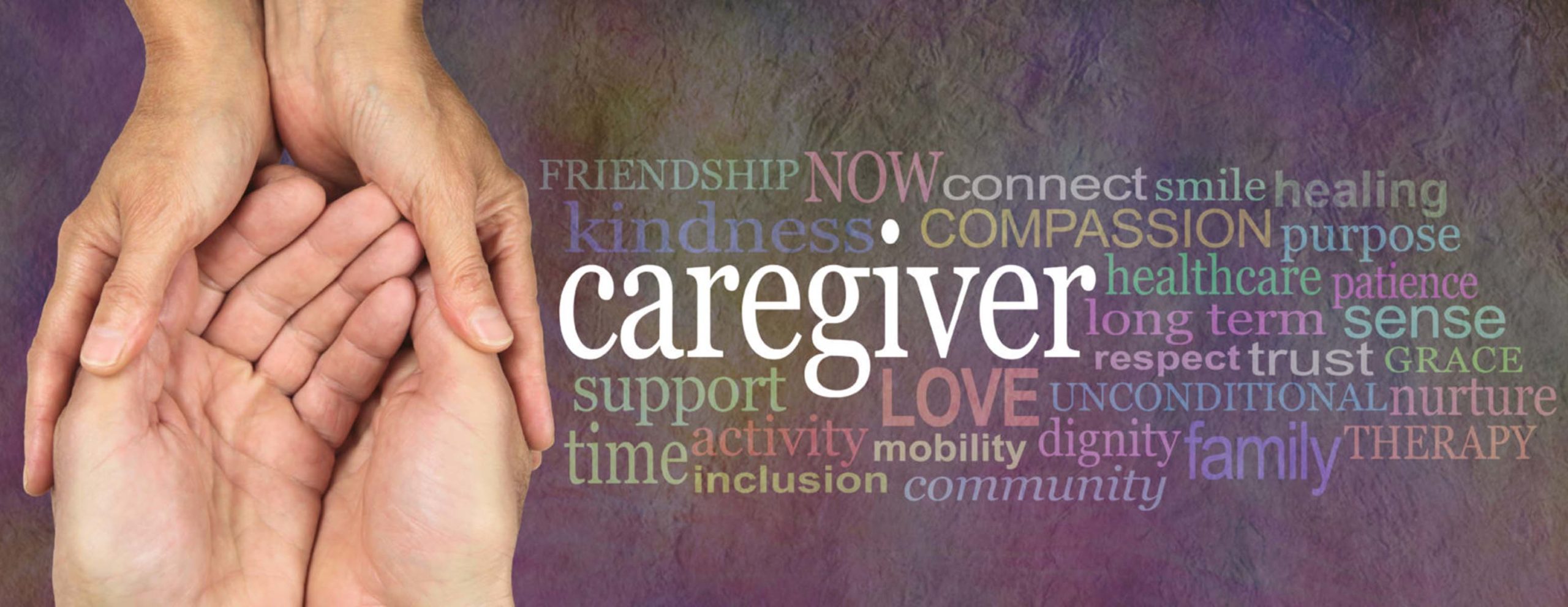Regardless of the amount of love you have for your aging loved one, circumstances may require you to hire someone else to take care of them. Caregiving is a tough job that becomes more difficult as your loved one gets older, so having professional help can be beneficial, especially if you have other responsibilities in life.
Almost all caregivers, including family caregivers, agree that the role is a very demanding one. A caregiver’s responsibilities and expectations are incredibly high. Most primary caregivers have also noted that caregiving affects their productivity level at work, so being the primary caregiver while working might require assistance.
In these circumstances, it is probably best for both you and your loved one to hire a professional caregiver. The following is a list of caregiver duties & responsibilities that you can expect them to take care of.
Caregiver Duties & Responsibilities
The duties of a caregiver can vary depending on the support your aging loved one needs. You can also give them specific instructions of the tasks you expect them to fulfill, but the list below is their essential duties and responsibilities.
1. Personal Care
It is common for older adults to have difficulty performing daily tasks. Simple tasks like getting dressed, showering, and brushing teeth can become tiring as the signs of aging progress. They can even be painful in some situations.
As a result, many of our senior loved ones neglect their hygiene solely because keeping up with their daily routine is burdensome. A caregiver’s job is to help the patient with as much or as little as they require to maintain their daily personal hygiene routine.

With the assistance of a competent caregiver, grooming, using the restroom, and exercising becomes much more manageable. The role of a caregiver is to provide help while allowing patients to maintain as much independence as possible. The relationship between a caregiver and a patient is strengthened by establishing a careful balance.
2. Medication Management
Seniors, on average, take five prescriptions every day. Depending on individual requirements and diagnoses, that number could rise or fall. While the number of medications taken is high, it is estimated that 75% of them are not properly taking their medications. Your loved one may be taking medications that interfere with one another, or they may lack the mental capacity to recall whether or not they have taken certain meds.
It is important to keep a close eye on the elderly’s medications and consumption with such a high-risk factor. A trained caregiver works closely with medical professionals to ensure that your loved ones properly take their prescriptions. They help lower the likelihood of major problems associated with incorrect medicine use by appropriately dispensing pills and thoroughly educating your aging loved ones.
3. Meal Planning and Preparation
Many people find it challenging to get the proper nutrients due to dietary limitations, preferences, and needs. Making healthy and enjoyable meals might be even more difficult for persons who are sick or elderly. A caregiver is an excellent solution for this problem.
A caregiver will work with your loved one to ensure that each meal is specifically tailored to their dietary demands and personal preferences while also being delicious and nutritious. Most caregivers will also handle the necessary grocery shopping and food preparations and create a menu to make mealtime easier.

4. Companionship
Loneliness and depression are significant problems among the elderly, leading to a lower quality of life. Even though family visits and social events are typical, many seniors feel lonely in between these engagements.
A caregiver is more than just someone who helps with non-medical activities daily. They are also a constant and dependable companion. Another caregiver’s responsibility is to keep an eye on patients while also providing them with someone to chat to regularly.
5. Transportation
For the elderly, transportation is a significant concern. Most seniors outlive their capability to drive safely by 7 to 10 years, but some continue to do so, endangering themselves and other people around them.
On the other hand, many older persons choose to employ the services of a caregiver to get to and from appointments, pharmacies, stores, and other places rather than relying on themselves.
Providing transportation to and from activities and assisting patients in and out of wheelchairs is one possible caregiver task. This reduces the stress and anxiety that you and your loved one may experience when coordinating transportation.

Care providers may even offer suggestions for new interests or hobbies or ways to develop new acquaintances. This type of emotional support system enables each senior to continue to enjoy their social lives. It provides stability they require to thrive in their golden years.
6. Memory Care
Patients with Alzheimer’s disease and dementia may struggle in their early stages. Due to the increasing confusion, they may become more forgetful and irritated. You and other family members may feel guilty if you cannot provide all the care they need in these hard times.
Fortunately, having a professional caregiver can help. The caregiver will provide stability and company and help the family rest easy knowing that their loved one is being watched and cared for at all times.
7. Family Support
It may not be easy for you to accept the signs of aging that your loved one may show. Many people are unsure how to assist or cope with this situation. A caregiver is available for both you and your elderly loved one.
A caregiver will provide knowledge, ideas, and strategies to help families live more comfortably. Family members can maintain their independence while still providing the care that their loved ones require with the help of an in-home caregiver.
8. General Health Care
Even though an in-home caregiver does not have the skills to perform examinations or in-depth health treatments, they are qualified to give basic care and health monitoring; they may follow a care plan and pay attention to the patient to make sure everything is well.
If a problem arises, the caregiver’s responsibility is to check with medical professionals before taking action.

Essential Skills of a Caregiver
1. Compassion
Compassion is one of the most important qualities a caregiver should have, especially since they may be assisting your loved one with physical or mental difficulties.
Even basic things like maintaining eye contact, speaking to their patients in a level and direct manner, and walking them through a new circumstance might help your loved one’s viewpoint and experience. Caregivers can help your loved one cope with the daily physical, mental, and emotional challenges of life by displaying compassion and empathy for their needs. Spend a few hours watching how the caregiver interacts with your aging parent paying attention to their verbal and non-verbal interactions.
2. Effective Communication Skills
Being a caregiver necessitates good communication skills. Many seniors need help with medication reminders, companionship, and daily living activities, and they rely on day-to-day talks to comprehend their care plan. Can your caregiver speak slowly and distinctly, without becoming frustrated if their instructions need to be repeated frequently?

Caregivers can provide better care and alter their approach based on their input by regularly communicating with their patients. Your loved one may feel abandoned and unclear of where the relationship stands if a caregiver cannot communicate effectively.
3. Flexibility
Unlike a regular work schedule, patients with disabilities do not work on a 9-to-5 schedule. Thus, caregivers must be fully aware that each day with their patients may differ depending on their loved one’s pain levels and emotional state.
Caregivers must be willing to adapt to their patient’s moods and be ready outside of typical working hours for extra care or in the event of an emergency.
4. Commitment
Relationships between caregivers and seniors need time and trust to create, so forming a solid one will not happen immediately. Caregivers who can make a long-term commitment to their patients’ care have a better chance of building a favorable relationship that leads to increased reliability and trust.
When there is a lot of turnover, your loved one may be hesitant to meet new people, making it challenging to communicate in new relationships.
5. Patience and Problem-Solving
The truth is that not everyone can become a full-time caregiver because it demands a great deal of patience and empathy for those with specific needs. It is not easy to care for persons with disabilities; therefore all caregivers must have a patient attitude and realize that they can always rely on their problem-solving skills to get through any problem.
Caregivers must be able to refocus when confronted with changes or obstacles throughout their work. They must remember that their patients are persons with a wide range of emotions and mobility challenges on a personal level. Good caregivers will take the time to get to know their patients and work with them to overcome any obstacles they may face.
What to Look for in a Senior Caregiver
Here are a few things that you should consider when hiring a professional caregiver, whether they be full-time, part-time, will live in your home, or work in facilities.
- Credentials, Licensing, and Experience
Be sure to hire a caregiver with the necessary credentials and experience to meet your loved one’s needs, especially if they need help with prescriptions or everyday chores. However, it is essential to remember that some jurisdictions do not require certification or credentials to work as a caregiver, so you need to double-check the certificates and licenses you are presented with to be sure they are issued by a reputable agency.
- Personality
Someone can have all of the credentials and experience in the world but lack a personality that is compatible with you and your loved one. If there are no red flags after doing a full background check through a national database, you just have to trust your gut. You should also ask final candidates some questions to know their interests so you can evaluate whether you and the caregiver are on the same page.

- References
Ask for references and call them and listen for any complaints or hesitancy in making a statement that could indicate a problem. Check their tenure of work as well, especially if you are looking for someone for long-term engagements.
Treat Your Caregiver with Respect
Always keep in mind that in-home or live-in personal caregivers are also people. They should be given a private space to work in while being comfortable. Make their shifts and working hours realistic, as they also require some alone time to live their lives.
Because caring for others is difficult, allowing them time to relax will help them perform better at work. By treating the caregivers working for your loved ones with respect and kindness, you can be sure that they will treat your loved ones with the same pleasant approach.




Leave a Reply